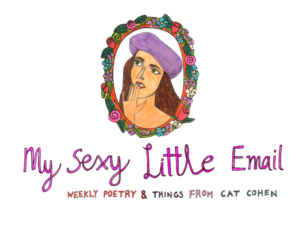Language, like culture, is continually subject to a biological evolution – the result is often spontaneous, surprising and remarkable, as long-time author and logophile Howard Richler has always known. The Montreal native’s seventh book, How Happy Became Homosexual and Other Mysterious Semantic Shifts, is an in-depth (not exhaustive by any means but more than enough to tempt your literary taste buds) study on how vocabulary undergoes semantic transformations. He uses the metaphor of how ancient alchemists would create “synonym chains” to get (again semantically) from one word or idea to another idea that might be completely the opposite. The example of how to go from “black” to “white” is a perfect illustration: black-dark-obscure-hidden-concealed-snug-pleasant-easy-simple-pure-white. We get such reversals as “nice” originally connoting ignorance (from the Latin nescius) and being lustful, into its current incarnation, or “livid” originally being something that had a leaden-blue hue to it.
Richler’s analysis takes the form of individual chapters, each illustrating a relevant aspect or element of language that has, over the course of millennia, centuries or even decades, helped to shape and redefine language according to popular usage and idiomatic fluctuations. These include metaphor, amelioration (where a word takes on a more positive connotation – “awesome” used to mean “terrible”), movement away from agrarian lifestyles and even major historical events (“holocaust” used to mean “a sacrifice consumed by fire”). But Richler approaches the monumental task of sifting for the origins of words in a humorous way, giving an alphabetic structure to each chapter and never failing to incorporate his own wit and opinion on these various elements. For instance, one of these, pejoration, has been a consistent force in steering certain words away from their original meanings and giving them new unflattering contemporary ones.
The best example of pejoration, perhaps, and one which is still contentious, is “faggot.” Between the 14th and 16th centuries, it went from referring to a stick to the more specific kindling used to burn heretics. In the 16th century, we also see how the patriarchal nature of the English language has often saddled women with the short end of the stick (no pun intended) as “faggot” became a derogatory name for women – probably because a broom, seen as a woman’s tool, was made out of sticks. We don’t see the pejorative form of “faggot” used to describe homosexuality until the early 20th century.
One of my favourite authors, Neil Postman, once referred to the English language as a “mutt language” in that it lacks the purebred influences of more insular languages like Japanese. English borrows from everything including Japanese: the word “tycoon” for instance was used to describe the Shogunate. As a result, Japanese is one of the more animated and colorful languages in existence, with a vocabulary that is always changing. The difficulty with such a tapestry is that it can often be difficult, if not downright impossible, to trace back the single thread of a word to where it first entered English.
But a great number of Richler’s examples of different word-transformations can be attributed in no small part to some of the most famous writers in history. From Milton’s Paradise Lost to Edmund Spencer’s The Faerie Queene to a slew of Shakespeare’s works, writers and poets have been at the forefront of some of the more remarkable semantic shifts in the English language, and I was pleased to note that many of these conversions were the result of metaphor. Although Richler devotes an entire chapter to talking about metaphor, I feel like it is often underplayed – the power of metaphor is the bridging of two unlike ideas in order to arrive at a singular cohesive idea, and the magic in this small literary device is colossal in terms of its capacity to alter meanings.
How Happy Became Homosexual is not a book you can pick up and read from end to end, simply because of the format. It’s the kind of the book you pick up every other chance you get, and you are flashed by a new syntactical factoid. Richler, for the most part, defends the solubility of language against traditionalist grammarian Nazis who don’t seem to understand that language is a fluid, not a solid. At times, he may take himself too seriously as well, but I think there is always a recognition of the fact that one has to balance the aesthetic of words with their functionality. As much as language is at the cortex of our ability to express emotions, ideas and thoughts, it is, and always has been, primarily about communication.






